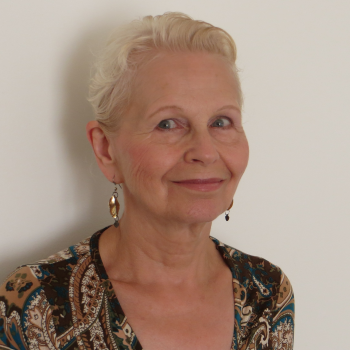In the interests of justice for falsely accused suspects, there are strong reasons for granting pre-charge anonymity to people accused of sexual offences, especially in cases of alleged historical (non-recent) child sexual abuse, many said to have occurred decades ago.
- Suspects in allegations involving children face penalties during investigation that do not apply to those accused of other crimes. They are likely to be prevented from having unsupervised contact with children, even within their own families; and for safeguarding reasons, listed on risk registers and may be barred from future jobs or voluntary work involving children. Long-term, they will become afraid of conversing with children in their own extended family in case suspicion is aroused. The implications of being treated as a potential paedophile even for a short period are profound.
- Their safety will be jeopardised. Child sexual abuse and rape tend to be regarded as more repugnant and unforgivable than murder. Once publicly named they are exposed to the danger of vigilantes or acts of vandalism against their property. Their immediate family may be in fear. My research has found that those wrongly accused of such crimes are seriously traumatised. With their name in the media, they feel vulnerable to being attacked.
- In such cases there is generally a deficit of verifiable evidence, and instead a reliance on statements. Many such allegations concern treatment of young people in institutional settings decades ago, the accused now being retired and elderly, often in poor health: it is particularly difficult for them to obtain exculpatory evidence from so long ago. Without such evidence suspects are rarely able to prove their innocence (unlike, for example, Christopher Jefferies who was famously suspected of murder until the DNA of the real offender was found). For the rest of their lives there will be onlookers who remain suspicious, their reputation as good people will remain soiled and they will be unable to put the ordeal behind them.
- Naming the accused for the purpose of gaining corroboration from other complainants, exposes suspects to miscarriages of justice (wrongful prosecutions and wrongful convictions). Barriers removed for genuine victims make it easier for spurious claims to be made,attracted by the various rewards that ‘coming forward’ may bring: attention and praise for their courage; being part of a movement eliminating a social evil; compensation, easily obtained from CICA, the Criminal Injuries Compensation Authority.
- Confirmation bias is built into policies that require police to believe the self-identified victim/survivor, that guide crown prosecutors away from questioning the credibility of the accuser, and that seek ‘corroboration by volume’ . If the accused worked in the same institution as a convicted sex offender they are highly vulnerable to being presumed guilty by association. The more people report that they were sexually abused by adults who had authority over them (when ‘in care’ at an approved school or community home, in a boarding school, as a member of a church) the more corrupt these institutions will seem. While there have been several grievous cases across the system of prolific sex offenders, the picture painted by reports to IICSA (the Independent Inquiry into Child Sexual Abuse) can make it seem as if nearly everyone who worked within these organisations was part of a paedophile ring. It is as if as if no child was ever helped by their teachers and social workers. Compensation solicitors advertise online and in the prison newsletter, ‘Inside Time’. IICSA puts out calls on television and in newspapers for victims and survivors to share their experiences at meetings of itsTruth Project, where they are not cross-examined, and from which falsely accused people are excluded. Operation Hydrant, which co-ordinates investigations into allegations of non-recent child sexual abuse, works in liaison with IICSA. To be named is to be put in the frame.
It is frequently argued that false allegations are rare. That depends on what is meant by ‘false allegations’: those that are found out to be fraudulent or malicious resulting in charges for perverting the course of justice are indeed rare. Plausible lies, and allegations that are unintentionally false (the mistaken identity of a childhood abuser, or the imaginings of a troubled person with mental health problems, or reconstructed memories of innocuous events in childhood) may never be detected. Making a false allegation is not a crime as such, and the Crime Survey of England and Wales, that collects statistics based on self-report of victimisation, does not include being wrongly accused. On the other hand, recent police counting rules have required that all reports of sexual offences are recorded as crime whether proceeded against or not. Any statistical surveys of false allegations should also include those that were investigated and found to be false without the case coming to the knowledge of the police, but still causing lasting damage. Apart from some older studies that are narrow in scope or have methodological flaws, we do not have statistics on the prevalence of false allegations of sexual offences. What is clear though is that the ratio of false to true reports is unlikely to be static: the cultural shift to encourage reports of sexual abuse and to believe complainants has created conditions for more of both kinds of report to be made.
It would be unacceptable if pre-charge anonymity for suspects set the clock back to victims being afraid to report offences. But that outcome seems highly unlikely now that the widespread occurrence of sexual offences is fully acknowledged in a justice system that is much more victim-centric. The Sexual Offences (Amendment) Act 1992 affords complainants the protection of lifelong anonymity, and the Victims Code ensures they will be supported. Importantly, another reassurance is that the current proposals for pre-charge anonymity of sexual offence suspects (in FAIR’s petition, and of suspects more broadly in Lord Paddick’s Anonymity of Arrested Persons Bill) include provisos for exceptions to be made if there is reason to believe the suspect is currently committing offences and others are in danger.







